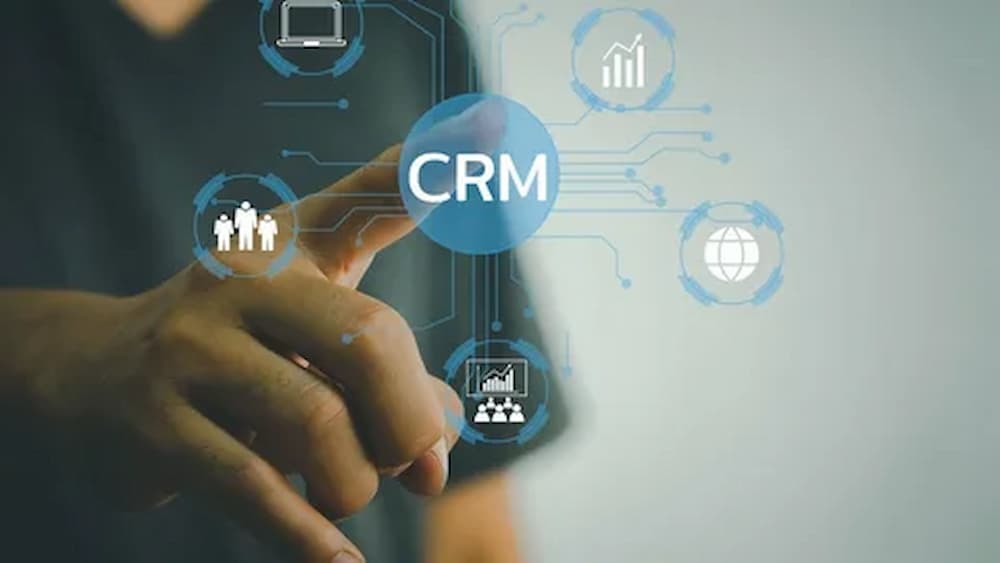Managing human resources can be a challenge for small businesses. You need tools that streamline processes like recruitment, payroll, time tracking, and employee management without breaking the bank. Whether you’re just starting out or scaling up your team an efficient HR software can save you time reduce errors and boost employee satisfaction.
Why Small Businesses Need HR Software
Small businesses often juggle multiple roles which can make HR tasks overwhelming. From onboarding to performance reviews every process needs to run smoothly. That’s where HR software comes in handy. It helps you automate repetitive tasks organize employee data and ensure compliance with labor laws.
“Small businesses thrive on efficiency” says Tamer Badr the owner of Singleclic. “Investing in the right HR software allows owners to focus more on growth and less on administrative burdens.”
HR Software for SMEs
Small and medium enterprises (SMEs) often face unique challenges in managing human resources efficiently. HR software designed for SMEs provides features tailored to businesses with fewer employees, offering scalable solutions for managing payroll, attendance, recruitment, and compliance.
HR Systems for Small Businesses
Comprehensive HR systems for small businesses integrate features like employee management, payroll, benefits administration, and time tracking. These systems help small business owners save time and ensure compliance.
HR Platforms for Small Businesses
HR platforms simplify tasks such as onboarding, tracking employee performance, and generating reports. Popular platforms, such as Microsoft Dynamics 365, offer intuitive interfaces and robust support tailored to small business needs.
Simple HR Software
For businesses that prefer a straightforward approach, simple HR software options provide essential functionalities without overwhelming features. These tools focus on core HR tasks, ensuring ease of use for smaller teams.
Payroll and HR Software for Small Business
Combining payroll with HR capabilities, these software tools allow small businesses to manage wages, tax compliance, and employee benefits in one place. Options like [insert examples] ensure accuracy and efficiency.
Best HR Platforms for Small Business
The best HR platforms for small businesses offer scalability, automation, and analytics to help streamline HR processes as businesses grow. They are particularly valuable for teams that anticipate expansion.
HR Apps for Small Business
Mobile-friendly HR apps provide small business owners and employees with on-the-go access to schedules, pay slips, and other critical HR information. Apps like Microsoft Dynamics 365 ensure seamless communication and accessibility.
HR Tools for Small Business
HR tools range from applicant tracking systems to performance evaluation software, catering to specific needs like recruitment or employee engagement. These tools are essential for improving efficiency in HR operations.
People Are Always Asking: What Makes the Best HR Software?
When looking for the best HR software people often ask:
- What features should I prioritize?
- Is it easy to use for non-tech-savvy employees?
- How much should I budget for HR software?
Below you’ll find answers to these questions and more as we explore the top HR software for small businesses.
Top HR Software for Small Businesses
1. Gusto
Gusto is popular among small businesses for its user-friendly payroll and benefits management. Its automation features simplify tax filing and direct deposits.
Pros:
- Automated payroll processing
- Integrated benefits management
- Intuitive interface
Cons:
- Limited customization for advanced users
- Costs can add up with add-ons
Pricing: Starts at $39/month plus $6 per employee
Best For: Small businesses needing a simple payroll solution
2. BambooHR
BambooHR focuses on employee experience offering tools for performance management and onboarding.
Pros:
- Robust onboarding tools
- Employee self-service portal
- Customizable workflows
Cons:
- Lacks built-in payroll for certain regions
- Limited reporting features for smaller packages
Pricing: Custom pricing available on request
Best For: Companies prioritizing employee engagement
3. Zoho People
Zoho People offers a wide range of HR functionalities at an affordable price.
Pros:
- Affordable pricing
- Great for remote teams
- Integration with Zoho ecosystem
Cons:
- Steep learning curve for beginners
- Limited features in basic plans
Pricing: Free for up to 5 users Paid plans start at $1 per user/month
Best For: Businesses on a tight budget
4. Freshteam
Freshteam simplifies recruitment and applicant tracking while also providing basic HR features.
Pros:
- Excellent applicant tracking
- Integrates with Freshworks suite
- Mobile-friendly interface
Cons:
- Not ideal for payroll management
- Reporting options are basic
Pricing: Free for up to 50 employees Paid plans start at $50/month
Best For: Companies focusing on recruitment
5. Paycor
Paycor combines payroll management with performance tracking and workforce analytics.
Pros:
- Advanced analytics tools
- Scalability for growing businesses
- Great customer support
Cons:
- Setup can be time-consuming
- Higher price point
Pricing: Starts at $99/month
Best For: Businesses needing detailed workforce analytics
6. Microsoft Dynamics 365 Human Resources
Microsoft Dynamics 365 Human Resources is a comprehensive HR solution that integrates seamlessly with other Microsoft tools. It provides advanced analytics and automation to help small businesses manage their workforce efficiently.
Pros:
- Integration with the Microsoft ecosystem (e.g., Excel, Teams, Outlook)
- Advanced analytics for workforce planning
- Highly customizable workflows
- Scalable to meet the needs of growing businesses
Cons:
- High cost compared to smaller, standalone solutions
- May be overly complex for very small teams
- Requires some technical expertise to configure
Pricing: Pricing starts at $120 per user/month
Best For: Small businesses already using Microsoft products and those seeking scalability and advanced analytics.
Key Features to Look for in HR Software
When choosing HR software for your small business consider these key features:
- Ease of Use: Intuitive navigation is a must especially for small teams without a dedicated IT department
- Automation: Look for tools that automate repetitive tasks like payroll or compliance updates
- Scalability: Pick software that grows with your business
- Integration: Check if it integrates with your current tools (like accounting software)
- Cost: Always factor in the total cost including hidden fees
Tamer Badr’s Advice on Choosing HR Software
According to Tamer Badr of Singleclic “The best HR software is the one that aligns with your business goals. Don’t overpay for features you won’t use and always consider scalability.”
Potential Drawbacks of HR Software
While HR software offers countless benefits it’s important to be aware of potential drawbacks:
- Learning Curve: Some platforms may require training
- Cost: Monthly subscriptions can add up especially with add-ons
- Customization: Certain tools may lack flexibility to meet unique needs
- Security: Storing sensitive employee data requires robust cybersecurity measures
FAQs About HR Software
Q: How much does HR software cost for small businesses?
A: Costs vary widely but many options start around $30-$100/month. Free trials are often available.
Q: Is HR software secure?
A: Most providers offer secure storage but always confirm encryption and compliance with GDPR or HIPAA.
Q: Can HR software handle payroll taxes?
A: Yes many platforms automate tax calculations and filings.
Reviews from Small Business Owners
- Gusto: “Gusto made our payroll effortless and employees love the self-service options”
- BambooHR: “Our team feels more connected thanks to BambooHR’s performance tools”
- Zoho People: “Affordable and functional but takes time to set up”










